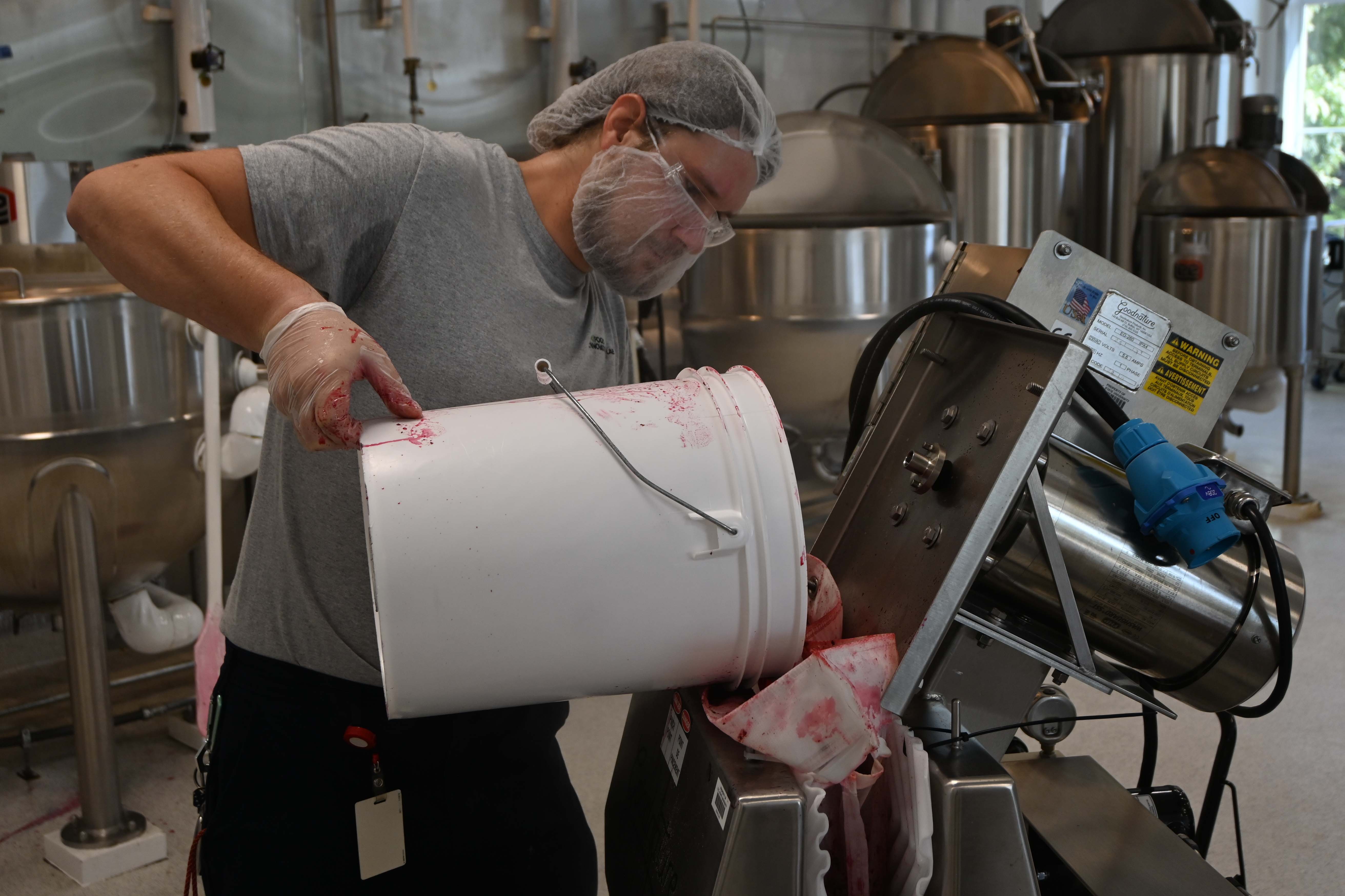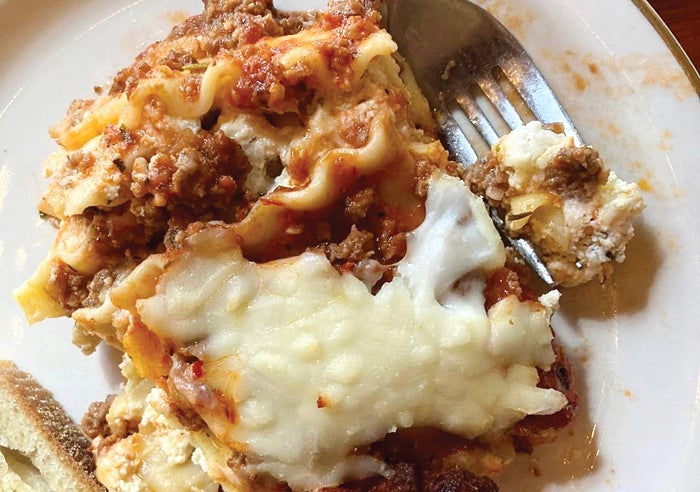Q&A with Chris Nagy
Published 12:00 am Tuesday, September 17, 2013
Dr. Chris Nagy, founder and director of Your Personal Wellness Center in Salisbury, will speak at 6:30 p.m. Thursday on “The Standard American Diet: History, Health and Disease” at the Center for the Environment facility on the Catawba College campus.
He talked recently with Juanita Teschner, the Center’s director of communications, about some of the things he will cover in his upcoming presentation. His talk is free and open to the public, but registration is required.
To register, visit CenterForTheEnvironment.org/home.html or call 704-637-4727.
Q: What has been the standard American diet in the past?
A: You can separate that into the traditional diet, which is the diet of our grandparents before the introduction of modern industrialized foods, or the standard American diet, which is the one we’re now consuming, primarily consisting of convenience and industrialized foods.
A hundred years ago we were basically all farmers and we ate what we grew, but with the frenetic pace of modern-day life, we have now traded convenience for disease. We now have an epidemic of chronic degenerative disease, which starts with our diet.
Q: What do you mean by convenience foods?
A: “Anything that comes in a package, a box or a bag” would be a good way to define that – or what’s found in the interior of the grocery story versus the outer perimeter of the grocery store.
Q: So what’s the foundation of our diet now?
A: We have a grain-based diet. Seventy percent of the American diet is corn, soy and wheat, and I guarantee you that a hundred years ago, that was not the foundation of our diet. You look at the USDA food pyramid, which was originally published in 1992, and it differs little from the same formula they use to fatten pigs and cows before they slaughter them (grain finishing). The food pyramid may not be the best recommendation to follow if you look at what has happened as a result of Americans following it.
Q: What has happened as a result of following a grain-based diet?
A: We have lived under the auspices of the lipid hypothesis for about 60 years, which basically says, don’t eat fat. Fat is bad. Fat causes obesity and heart disease. As a result of this thinking, we’ve shunned fat and replaced it with carbohydrates, which, again, are grains – corn, soy, wheat/bread, cereal, pasta – sugar.
Carbohydrates spike insulin levels, which lead to obesity, diabetes, heart disease, Alzheimer’s, cancer – all those degenerative diseases. So we’ve become “carbovores” when genetically, we’re carnivores. We‘re eating mostly what I call “carbage.”
Q: What about genetically engineered foods or the pesticides and herbicides used in modern industrial agriculture?
A: When you go to Europe, you’re going to see a heck of a lot fewer obese people than in America. The European Union has banned many of the chemicals, fertilizers and the genetically engineered foods that we accept. The stance we take in America is if it hasn’t been proven dangerous, we’ll allow it on the market. The stance they take in Europe is, if it hasn’t been proven safe, we’re not going to allow you to use it on our people in one grand experiment.
Q: So how do we combat it?
A: It’s hard to reverse. I am a foodie, but I’m not an activist. My mantra is, “When you know better, you do better.” I think people hunger for this information, but they’re not going to get it from many dieticians these days or from government recommendations (consensus science). They are going to discover it when they start thinking for themselves and looking at the dietary facts over history – an anthropological perspective. You know, eat like your grandparents ate.
Q: What do you say to people who point out that we now live longer than our grandparents?
A: We’ve extended our life span, but we definitely have not extended our health span. Diabetes, Alzheimer’s, cancer – all of those things continue to plague American society. We may live longer but do we live better, longer?
Q: Why are genetically engineered foods bad for us?
A: Genetically engineered foods must be labeled in 64 countries and are banned in 27 countries. Not in America, of course. Genetically engineered foods were produced theoretically to increase crop yield (which they do not) and to allow the crops to withstand the herbicide glyphosate, which is found in Roundup. So you spray Roundup on these crops and they don’t die, but the weeds around them die. It allows for the chemicalization of agriculture and an easy way to kill the weeds, but the problem is that all of those crops, which withstand Roundup, are then fed to us and we then ingest the residues and the altered proteins from the genes that have been manipulated. Glyphosate is carcinogenic. In addition, the Center for Disease Control has reported a 265 percent increase in hospitalizations for food allergies over the past 10 years. You’ve got to ask yourself, “What’s going on?” It has a lot to do with these foreign proteins that are produced as a result of the genetic engineering of foods. It’s a complicated topic but one that deserves clarification and honest investigation.
Q: Obesity is a huge problem in the United States. What do you think is the cause?
A: We traditionally are taught, “Calories, in, calories out.” Basically, the saying is we eat too much and we exercise too little. Therefore, we’re all obese. The truth of the matter is that that’s false. It’s not just calories in, calories out. It’s the quality of the calories. You can’t tell me that a calorie of chips is equal to a calorie of broccoli. There are chemicals in our environment called obesogens – endocrine disrupting chemicals, which tag onto the hormone receptors and also stimulate obesity.
Q: What would a typical dinner for your family look like?
A: Dinner for us would be some type of grass-fed beef or pastured pork, a vegetable, usually broccoli, and I try to incorporate some fermented foods into my diet – homemade sauerkraut, kimchi (fermented vegetable dish), kefir (fermented milk) or kombucha (fermented sweet tea). Fermented food is great for the gut. We drink water. We don’t consume a lot of dairy because dairy has a number of problems in and of itself.
Q: No breads?
A: Definitely no breads. I have daughters who are gluten sensitive. Gluten leads to something called leaky gut. Grains cause inflammation in the gut lining, break down the cell walls and basically undigested food gets into your system, inciting an immune response, and then you wake up and you’re 43 years old and you have rheumatoid arthritis and you’re scratching your head and saying, “Where the heck did this come from?”
Eighty percent of your immune system is in your gut. So if you constantly assault it with inflammatory proteins and foods that incite inflammation, you’re going to end up like most Americans – overweight, sick and just waiting for your degenerative disease to show up.
Q: So let’s encapsulate what your presentation is going to cover.
A: How the traditional American diet has changed and what we need to do to get back to being healthy again. Counting calories on a daily basis is not sustainable. We need to eat intuitively so that we nourish health thus causing disease to disappear as a side effect.





